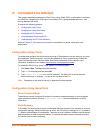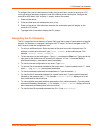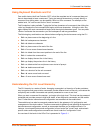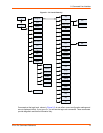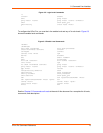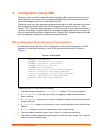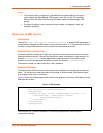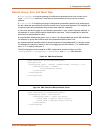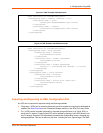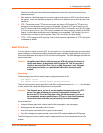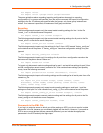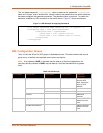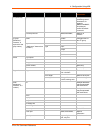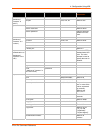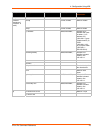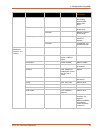
4: Configuration Using XML
XPort Pro Command Reference 17
Figure 4-5 XML Example of Multiple Items
Figure 4-6 XML Example with Multiple Groups
Importing and Exporting an XML Configuration File
An XCR can be imported or exported using the following methods:
Filesystem—XCRs can be saved to the device server file system and imported or accessed as
needed. See Best Practices or the Filesystem Browser section in the XPort Pro User Guide.
CLI—XCRs can be imported (captured) or exported (dumped) directly to a Telnet, SSH, or
serial line CLI session. Capturing an XCR can be started by pasting a valid XCR directly into
the CLI prompt. Evolution OS immediately processes the configuration record, changing any
settings specified. This can be done on any level, including the root. Special tags in the XML
<?xml version=”1.0” standalone=”yes”?>
<configgroup name = “email” instance = “1”>
<configitem name = “to”>
<value>john.doe@somewhere.com></value>
</configitem>
<configitem name = “from”>
<value>evolution@xportpro.com></value>
</configitem>
</configgroup>
<?xml version=”1.0” standalone=”yes”?>
<configgroup name = "ftp server">
<configitem name = "state">
<value>enable</value>
</configitem>
<configitem name = "admin username">
<value>admin</value>
</configitem>
<configitem name = "admin password">
<value><!-- configured and ignored --></value>
</configitem>
</configgroup>
<configgroup name = "tftp server">
<configitem name = "state">
<value>enable</value>
</configitem>
<configitem name = "allow file creation">
<value>disable</value>
</configitem>
</configgroup>



